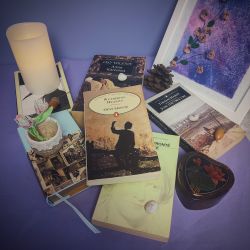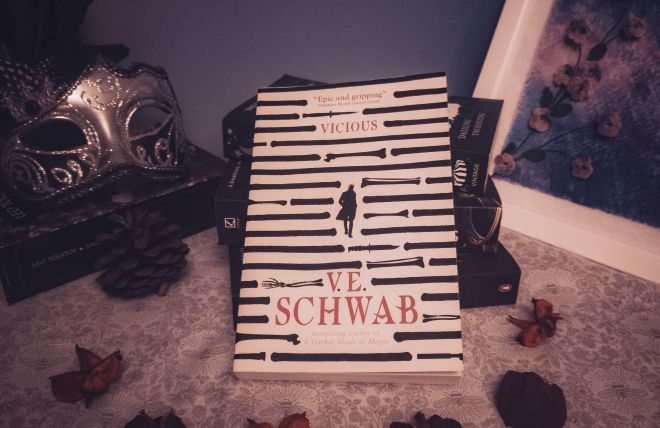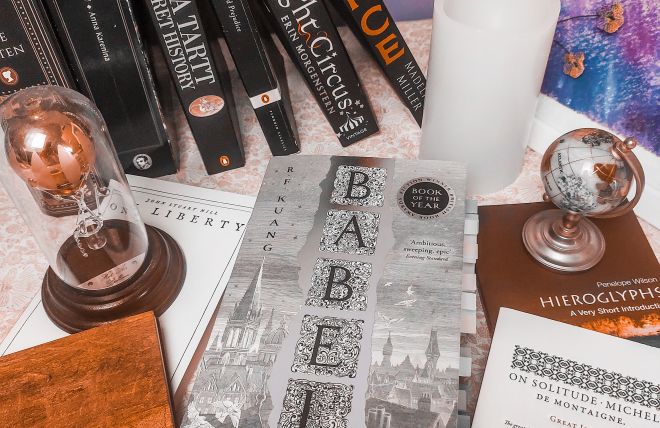*THIS REVIEW CONTAINS SPOILERS, PLEASE READ WITH CAUTION*
Wuthering Heights is a dark, foreboding, and intense novel that explores a myriad of themes such as love, obsession, power, revenge, family relationships, gender roles and social class. Set on the rugged rural backdrop of the Yorkshire moors, Wuthering Heights explores the twisted interconnection between two English families that sparks from the doomed love that blossoms between Catherine Earnshaw and Heathcliff – an orphan Catherine’s father adopted.
Wuthering Heights is deeply sublime in the context of Romanticism, the isolated, wild setting of the novel really reflects the actions, personalities and emotional responses of the characters that really overwhelms our senses. There is something wild and irrational about the characters in Wuthering Heights, all of their emotions (love, jealously, revenge, selfishness, cruelty and regret) are heightened, and Brontë sustains extremely well the emotional intensity throughout the novel.
Wuthering Heights is one of those novels that doesn’t necessarily offer an enjoyable reading experience but is nevertheless thought-provoking. There were times where I was taken aback by Brontë’s tumultuous and confrontational writing style and had to push myself to continue reading. The novel is a tragedy – a dark exploration of some very heavy topics that cannot be romanticised. Thinking retrospectively Wuthering Heights is quite ambitious in its’ exploration of the crueller side of human nature, and I liked that Bronte drew out how this was caused by the terrible past experiences and societal constraints the characters faced.
There is nothing that escapes being tarnished by cruelty in Wuthering Heights, including love. The relationship between Catherine and Heathcliff is tormenting, it haunts in life, death and through to the next generations. Heathcliff’s terrible treatment of the younger generations fuelled by a personal vendetta, reminded me of Cronus eating his children in a desperate act of gripping onto power. In a similar fashion it really reminded me of Hozier's song Eat Your Young in how acts of shame, trauma and abuse end up being transferred throughout generations, and how children end up paying the price of their predecessors’ hurt and greed.
Therefore, I personally found the ending very satisfying. Heathcliff’s reunion with Catherine in death, and Hareton and Cathy's union in life, broke the vicious cycle that would have only continued if the two pairs would not have been able be with each other in the end. While I personally don’t find Wuthering Heights a romance, I do think there is something romantic about Brontë’s exploration of the terrible consequences that occur from the longing of when two souls that are the same cannot find each other. And the relief that comes once they finally do.
Wuthering Heights’ main weakness in my opinion, was the way in which Heathcliff is characterised as foreign evil which I found quite problematic, and for me the social commentary of the novel did somewhat collapse under Brontë’s characterisation of the protagonist.
Below are my favourite quotes from the novel:
“He's more myself than I am. Whatever our souls are made of, his and mine are the same.”
“I have dreamt in my life, dreams that have stayed with me ever after, and changed my ideas; they have gone through and through me, like wine through water, and altered the colour of my mind.”
“I’m wearying to escape into that glorious world, and to be always there: not seeing it dimly through tears, and yearning for it through the walls of an aching heart: but really with it, and in it.”
“Treachery and violence are spears pointed at both ends; they wound those who resort to them worse than their enemies.”


